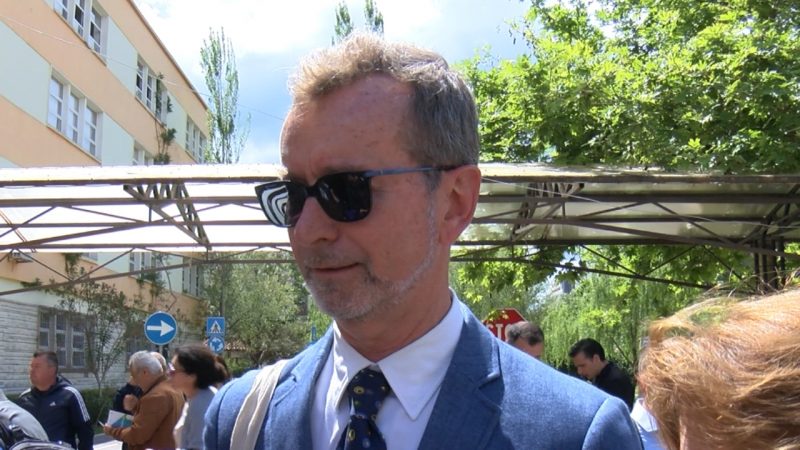 Opposition demonstrators clash with the police in the protest in front of Tirana municipality, foreign embassies condemn acts of violence
Opposition demonstrators clash with the police in the protest in front of Tirana municipality, foreign embassies condemn acts of violence
13/04/2011 14:30

Albanian President Bamir Topi sent the “excise law” back to the Parliament for a review. On a declaration published on the official web page, the Head of State explains the reasons of this decision, saying that article 24 of the existing law conflicts with article 33 of Stabilization and Association Agreement.
“The reason why I did not enact this law regards article 24 of the existing law ‘for the excises of the Republic of Albania’, and the appendix attached to it. This amendment conflicts with law no. 9590 of April 27th 2006 for the ‘Ratification of Stabilization and Association agreement – Association between the Republic of Albania and the European Communities and their member states’. Article no. 33 of the Stabilization and Association Agreement provides that ‘from the date when this law goes into effect, there are no new custom obligations for the imports or exports, and no new fees equal to them, and the actual fees between EU and Albania will not be increased’. This law changes the fees assigned before the implementation of the Stabilization and Association Agreement, an agreement that comes after the Constitution”, the President explained.
“At my discretion, the implementation of this new amendment conflicts with the principle of an economic system based on the market economy, sanctioned by the Constitution of the Albanian Republic and creates as consequence discrimination of the domestic product. With the ratification of the SAA, our country commits not only to increase political and economic liberties, which are the foundations of this agreement, but it is also committed towards the principles of the free market”, Topi declared.
According to the President, frequent changes not only do not bring the desired expectancies, but could also create an adverse effect.
“These laws have sensible consequences that directly affect the creation of a climate, favorable or not, for the development and stimulation of the market economy. This law not only increases the cost of the domestic production, but could bring another negative effect regarding the employees of this industry, causing them to lose their jobs”, Topi says.
Top Channel
 Opposition demonstrators clash with the police in the protest in front of Tirana municipality, foreign embassies condemn acts of violence
Opposition demonstrators clash with the police in the protest in front of Tirana municipality, foreign embassies condemn acts of violence 19/04 16:00







